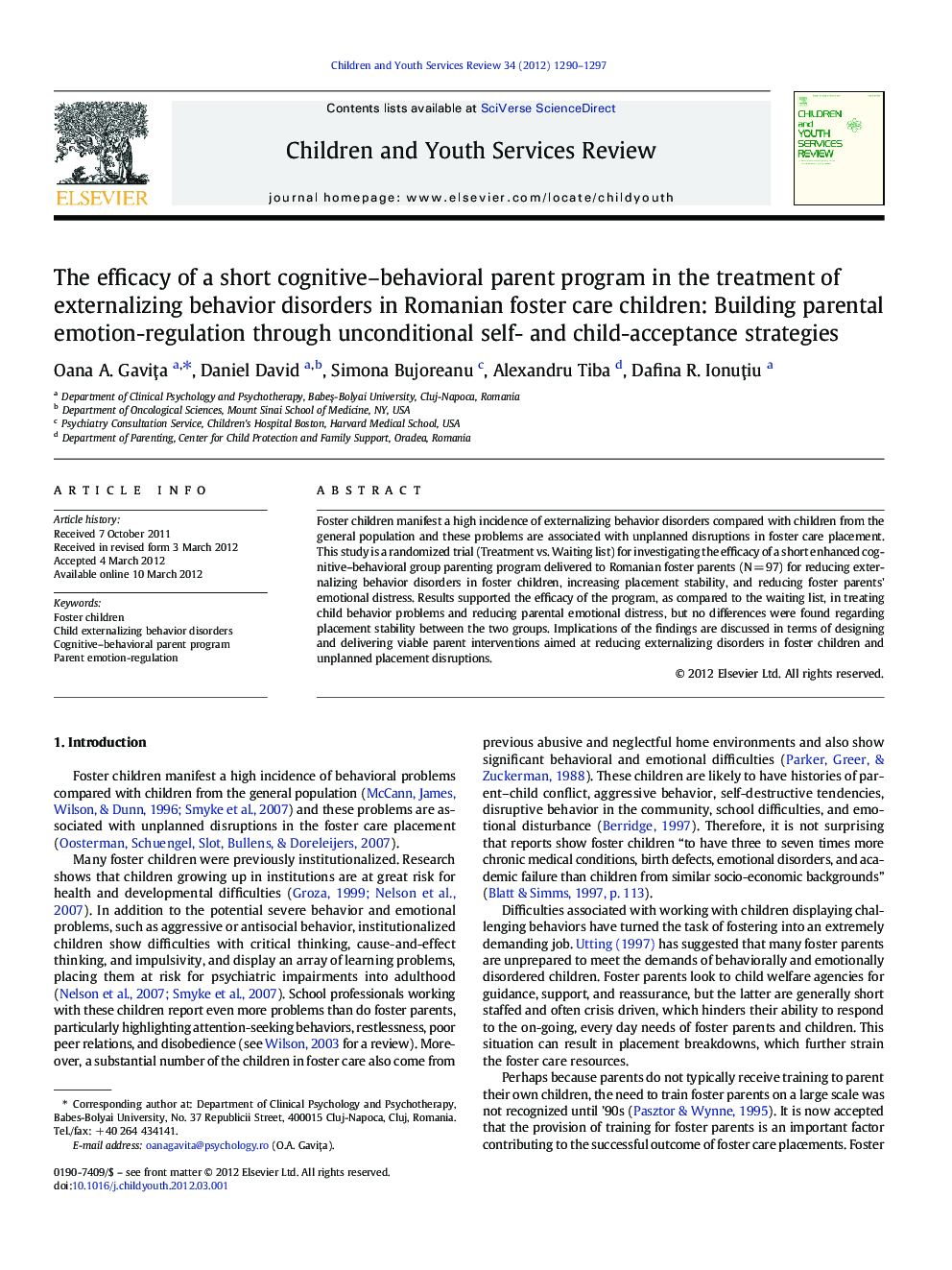| Article ID | Journal | Published Year | Pages | File Type |
|---|---|---|---|---|
| 346458 | Children and Youth Services Review | 2012 | 8 Pages |
Foster children manifest a high incidence of externalizing behavior disorders compared with children from the general population and these problems are associated with unplanned disruptions in foster care placement. This study is a randomized trial (Treatment vs. Waiting list) for investigating the efficacy of a short enhanced cognitive–behavioral group parenting program delivered to Romanian foster parents (N = 97) for reducing externalizing behavior disorders in foster children, increasing placement stability, and reducing foster parents' emotional distress. Results supported the efficacy of the program, as compared to the waiting list, in treating child behavior problems and reducing parental emotional distress, but no differences were found regarding placement stability between the two groups. Implications of the findings are discussed in terms of designing and delivering viable parent interventions aimed at reducing externalizing disorders in foster children and unplanned placement disruptions.
► Foster children manifest a high incidence of externalizing behavior. ► Romanian child welfare system needs assistance for improvement of clinical services. ► We investigated the efficacy of a cognitive–behavioral foster parent program. ► We found significant impact on child externalizing disorders and parent variables. ► No effect was detected for placement stability.
